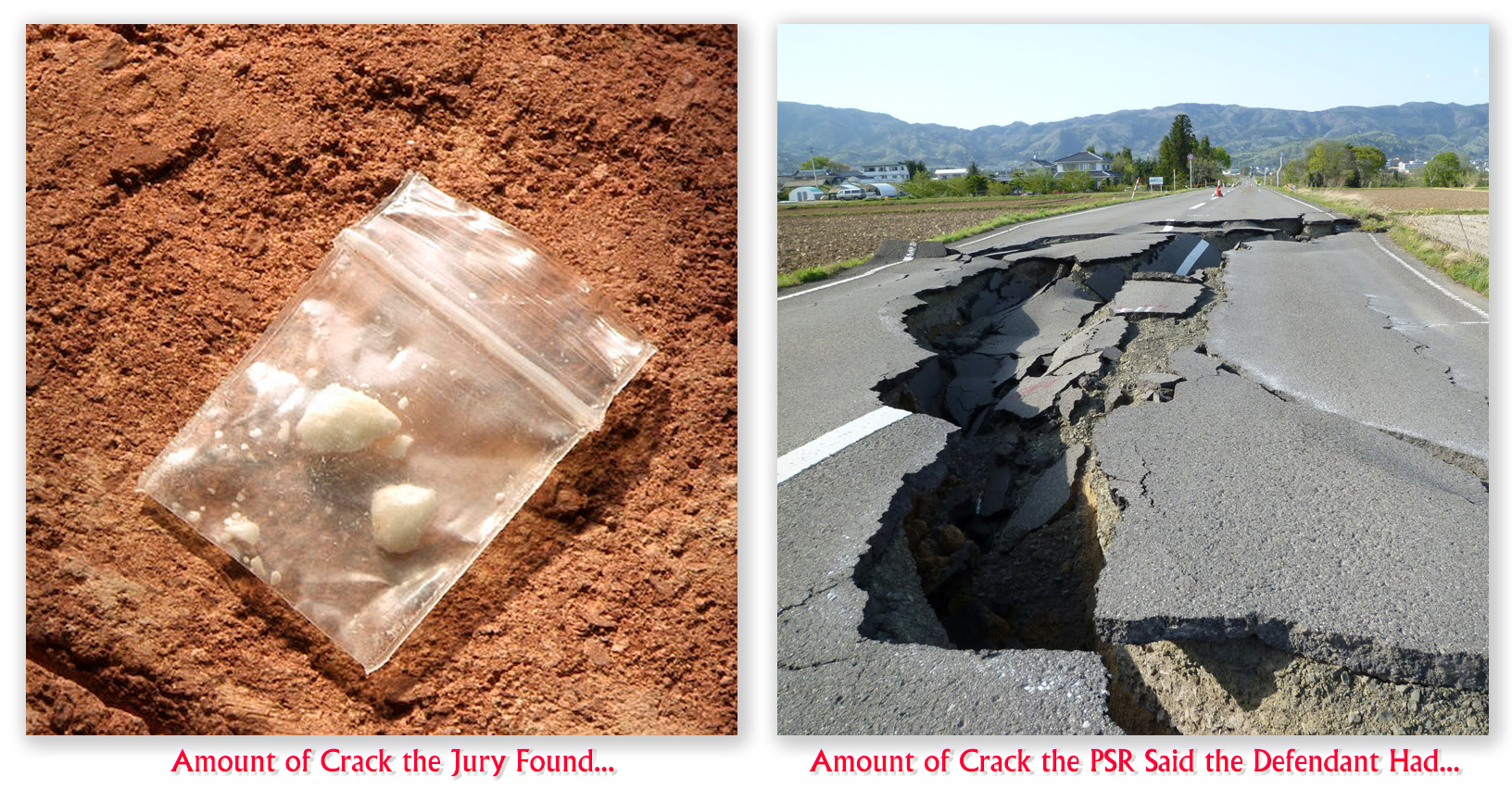We post news and comment on federal criminal justice issues, focused primarily on trial and post-conviction matters, legislative initiatives, and sentencing issues.

5TH CIRCUIT DECISION SHARPLY LIMITS FAIR SENTENCING ACT RESENTENCINGS
 An arcane but very important question raised by the retroactive sentencing of people with pre-Fair Sentencing Act crack cases has been whether it is an entirely new sentence being imposed – called a plenary resentencing – or just a limited resentencing that cannot consider anything other than a lower Guidelines score.
An arcane but very important question raised by the retroactive sentencing of people with pre-Fair Sentencing Act crack cases has been whether it is an entirely new sentence being imposed – called a plenary resentencing – or just a limited resentencing that cannot consider anything other than a lower Guidelines score.
This is critical, because for a lot of people falling under Sec. 404 of the First Step Act, which authorizes retroactive resentencing under the Fair Sentencing Act of 2010, were sentenced back in the bad old days before Alleyne protected against mandatory minimums being applied by the judge acting without a jury, and even before Booker, when the Sentencing lines were mandatory. A full resentencing would let people get resentenced with full constitutional protections. A limited resentencing would require the judge to apply many of the processes and rules that have since been held to violate a defendant’s rights.
Most district courts have conducted full resentencings, but as I warned a few months ago, some were pretending that the FSA resentencings were nothing different from 3582(c)(2) Guidelines sentence reductions. Last week, the 5th Circuit became the first appeals court to address the issue, and the results were not pretty.
The Circuit concluded that “the First Step Act does not allow plenary resentencing…” It ruled that the plain text of Sec. 404 only “grants a district judge limited authority to consider reducing a sentence previously imposed. The calculations that had earlier been made under the Sentencing Guidelines are adjusted ‘as if’ the lower drug offense sentences were in effect at the time of the commission of the offense. That is the only explicit basis stated for a change in the sentencing.”
 The 5th said the limits in Sec. 404 “make the First Step Act similar to Section 3582(c), which opens the door only slightly for modification of previously imposed sentences for certain specified reasons, including the lowering by the Sentencing Commission of the sentencing range that was in effect for the defendant at the time of initial sentencing.” Relying on the 2010 Dillon v. United States Supreme Court case, the Circuit concluded “Congress intended to authorize only a limited adjustment to an otherwise final sentence and not a plenary resentencing proceeding… The district court decides on a new sentence by placing itself in the time frame of the original sentencing, altering the relevant legal landscape only by the changes mandated by the 2010 Fair Sentencing Act. The district court’s action is better understood as imposing, not modifying, a sentence, because the sentencing is being conducted as if all the conditions for the original sentencing were again in place with the one exception. The new sentence conceptually substitutes for the original sentence, as opposed to modifying that sentence.”
The 5th said the limits in Sec. 404 “make the First Step Act similar to Section 3582(c), which opens the door only slightly for modification of previously imposed sentences for certain specified reasons, including the lowering by the Sentencing Commission of the sentencing range that was in effect for the defendant at the time of initial sentencing.” Relying on the 2010 Dillon v. United States Supreme Court case, the Circuit concluded “Congress intended to authorize only a limited adjustment to an otherwise final sentence and not a plenary resentencing proceeding… The district court decides on a new sentence by placing itself in the time frame of the original sentencing, altering the relevant legal landscape only by the changes mandated by the 2010 Fair Sentencing Act. The district court’s action is better understood as imposing, not modifying, a sentence, because the sentencing is being conducted as if all the conditions for the original sentencing were again in place with the one exception. The new sentence conceptually substitutes for the original sentence, as opposed to modifying that sentence.”
Ohio State University law professor Doug Berman said Saturday in his Sentencing Law and Policy blog that “as a matter of sound policy and practice, I think it makes more sense to approach these cases as full resentencings with all subsequent changes in both applicable sentencing laws and relevant sentencing facts available for, and integral to, the judge’s resentencing decision. Otherwise, as seems to be the case in Hegwood, a defendant already subject to the undue harshness of the old 100-1 crack mandatory minimums is still forced to endure the undue harshness of other problems with the guidelines that have been fixed since his original sentencing.”
The best we can hope for is that other circuits will split in the other direction, setting this issue up for Supreme Court review.
United States v. Hegwood, Case No. 19-40117 (5th Cir. Aug. 8, 2019)
Sentencing Law and Policy, Fifth Circuit articulates limiting account of FIRST STEP Act crack resentencing (Aug. 9, 2019)
– Thomas L. Root

